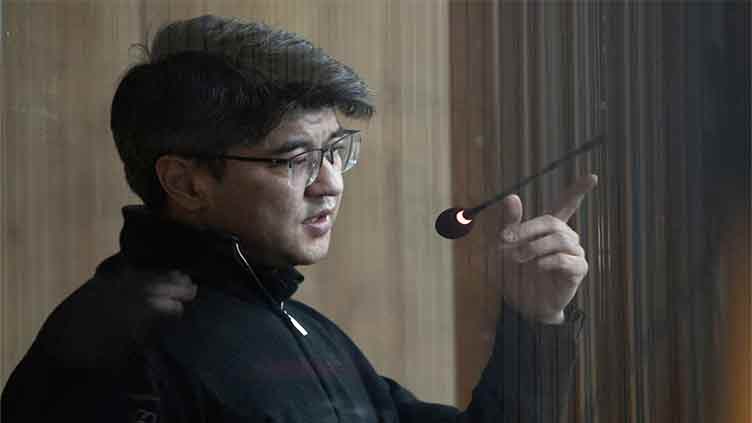Murder trial seen as test of Kazakh leader's pledge on women's rights

World
Murder trial seen as test of Kazakh leader's pledge on women's rights
ALMATY (Reuters) - The trial of a former government minister charged with beating his wife to death has gripped public attention in Kazakhstan, and some see it as a litmus test of President Kassym-Jomart Tokayev's promise to build a fairer, more equitable society.
Shocking footage played in the courtroom this week showed Kuandyk Bishimbayev, a former economy minister, repeatedly kicking and punching a slender young woman wearing only a coat and boots, and dragging her around by her hair.
The woman, 31-year-old Saltanat Nukenova, was found dead last November in a restaurant owned by a relative of her husband, where the couple had spent almost a whole day and the previous night. She had been unconscious for hours.
According to a coroner's report, Nukenova died from brain trauma. One of her nasal bones was broken and there were multiple bruises on her face, head, arms and hands.
Bishimbayev, 43, is charged with torture and murder with extreme violence and faces up to 20 years in prison. He has pleaded not guilty and has argued in court that Nukenova died from self-sustained injuries.
Many Kazakhs see Bishimbayev as a typical member of the country's wealthy ruling elite and fear that, even if found guilty, he may somehow escape proper punishment - as was the case with a previous conviction.
Bishimbayev was arrested in 2017 on bribery charges and sentenced to 10 years in prison, but walked free after less than three years behind bars thanks to an amnesty and parole.
Kazakhstan, an oil-rich nation of 20 million people, has seen numerous other examples of members of the elite getting away with various crimes, a trend that has fed public distrust of the legal system.
PATRIARCHAL SOCIETY
However Tokayev, who replaced veteran Kazakh leader Nursultan Nazarbayev five years ago, said he wanted to build a fairer society including improved rights for women, in what remains a socially conservative, patriarchal country.
Another reason why many Kazakhs are closely following the trial, which is being broadcast online, is the fact that domestic violence, and violence against women in general, were already hot button issues before the murder.


